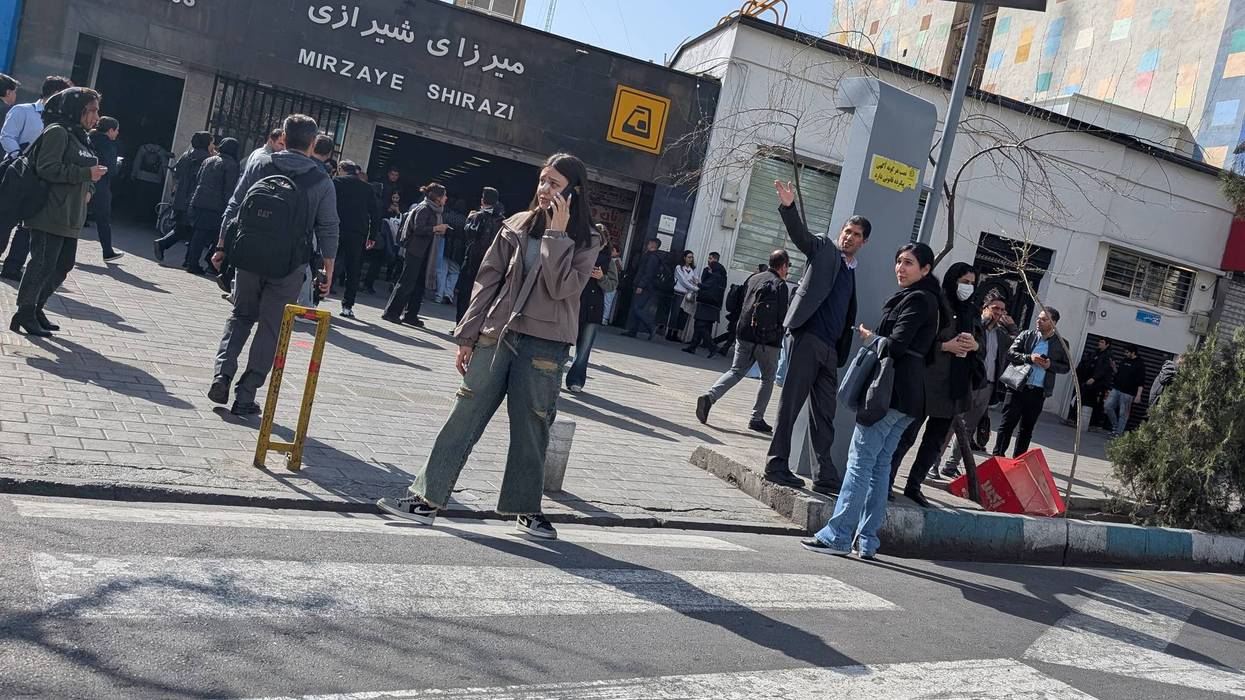December, 04 2017, 03:15pm EDT

Alaska Native and Conservation Groups Sue Bureau of Land Management for Shortsighted Approval of Mineral Exploration
Groups say agency must consider impacts of potential development before allowing project to advance beyond point of no return.
Anchorage
An Alaska Native Tribal Government and three conservation groups are suing the U.S. Bureau of Land Management (BLM) for failing to consider the future impacts of mine development before approving an exploration plan for a hardrock mine project in the Chilkat River watershed in Southeast Alaska.
The Chilkat River -- "Jilkaat Heeni" in the Tlingit language, meaning "storage container for salmon" -- runs from its headwaters in the Coast Mountains of British Columbia, Canada, into the sea near Haines, Alaska. The watershed, which includes the Klehini River, provides spawning grounds for all five species of Pacific salmon, as well as anadromous eulachon and trout. The surrounding steep mountainsides, forests, and river valleys are inhabited by mountain goats, wolverines, wolves, black and brown bears, and moose. It is a spectacularly beautiful, amazingly special and unique place in this world.
Where the Chilkat and Klehini Rivers meet the Tsirku River near Klukwan, alluvial deposits under the riverbeds release warm water and keep the confluence open into late autumn when other waterbodies have frozen. Here, within an area set aside as the Alaska Chilkat Bald Eagle Preserve, thousands of bald eagles gather to feast on the last runs of coho and chum salmon -- a globally unique phenomenon.
The watershed was settled millennia ago and is the traditional territory of the Chilkat Tlingit people. Today, the watershed remains central, economically and culturally, to the Chilkat Indian Village of Klukwan, a federally recognized tribe. Traditional harvests, particularly of wild salmon and eulachon, are the lifeblood of the Village.
Wild stocks of salmon returning to the Chilkat watershed are harvested by commercial, recreational and subsistence fishermen. The Chilkat watershed is central to the livelihoods and culture of people who live, fish, and hunt there, or otherwise depend on and enjoy the region's pristine waters, rich wildlife, and immense natural beauty.
Today, mining threatens the watershed. A Canadian company, Constantine Metal Resources Ltd., with financing from a Japanese company, Dowa Metals & Mining Co. Ltd., is conducting exploration drilling above Glacier Creek, a tributary of the Klehini River, to determine whether there is a commercially valuable copper-zinc-gold-silver deposit in the mountainside. If exploration leads to such a discovery, the next step would be full-scale mine development to extract metals-bearing rock, a process that has the well-documented and all-too-frequent consequence of releasing toxic heavy-metals pollution and acidic water into the surrounding environment. If developed, the mine would threaten the downstream environment, including the Alaska Chilkat Bald Eagle Preserve and Klukwan, with mine-waste pollution that could devastate fish populations and all who depend upon them.
BLM has oversight responsibility for Constantine Metals' project, but has failed in that role. Under the United States' bedrock environmental laws, BLM must consider the impacts of its incremental decisions advancing the mining project. In the past year and a half, BLM has twice approved Constantine Metals' exploration activities, both times refusing to consider the impacts of potential mine development and its potentially devastating consequences for the watershed, even as the company continues to invest more money in the project. BLM's promise to look at development impacts later is insufficient; if the company were to discover a valuable deposit to mine, BLM's power under the law to protect the public's land at that point would be compromised.
Faced with these illegal actions and impending threats, the Chilkat Indian Village of Klukwan, Southeast Alaska Conservation Council, Lynn Canal Conservation, and Rivers Without Borders filed a complaint in the United States District Court for the District of Alaska asking a federal judge to invalidate BLM's approvals of the project and order the agency to comply with legal requirements to consider all of the project's impacts, including from potential development. The groups are represented by the Alaska office of the nonprofit environmental law firm Earthjustice.
The following are statements from the groups:
"The Chilkat Tlingits did not merely subsist, but thrived because of the abundance of salmon that migrate home to this watershed. Over the past several years our Tribe has been having government-to-government discussions with BLM regarding the permitting process for mining in the Chilkat Watershed," said Kimberley Strong, Tribal President of the Chilkat Indian Village of Klukwan. "We have strongly objected to BLM's permitting process as it does not take into account the environmental risks from a fully operating hardrock mine. Hardrock mining is a threat to our Chilkat wild stock salmon and the sustainability of our community. All five species of wild Pacific Salmon, as well as Steelhead, and Dolly Varden inhabit the watershed. It continues to feed our people as it has for thousands of years."
"The incremental permitting of big potential mines like the Palmer Project presents a real threat to downstream communities like Klukwan and Haines, and to the salmon and clean water upon which all Southeast Alaskan communities rely," said Meredith Trainor, Executive Director of the Southeast Alaska Conservation Council. "We are now at a key point in the approval process where BLM still has the authority to influence and shape the outcome. But by permitting this project piecemeal, BLM is effectively ignoring their responsibility to conduct a thorough assessment. Considering only a small area and a short timeframe leaves the public agency blind to any consideration of how downstream communities will be impacted and does not provide communities with an opportunity to raise concerns about what full mineral exploitation will mean to their people and their future."
"Lynn Canal Conservation is dedicated to protecting the ecological integrity of the upper Lynn Canal, the Chilkat Valley, and the Alaska Chilkat Bald Eagle Preserve, located just a few miles downstream of the Palmer Project," said Eric Holle, President of Lynn Canal Conservation. "By letting an industrial-scale project proceed with limited consideration of impacts, from exploration toward full mine development, BLM is putting wild stocks of salmon, the keystone species of the region, at risk. This decision threatens the biological fabric that our members rely on."
"The Chilkat watershed has outstanding ecological, cultural and economic values that need to be safeguarded," said Will Patric of Rivers Without Borders. "With so much at stake, activities that may lead to mining in the headwaters demand rigorous, comprehensive and objective analyses. Unfortunately, that's not what we're seeing from the BLM."
"BLM is committing itself to a path while willfully ignorant of the destination," said Kenta Tsuda, an attorney at Earthjustice. "We're asking the court to make the agency take off the blindfold and evaluate the impacts of its decisions before it's too late."
Earthjustice is a non-profit public interest law firm dedicated to protecting the magnificent places, natural resources, and wildlife of this earth, and to defending the right of all people to a healthy environment. We bring about far-reaching change by enforcing and strengthening environmental laws on behalf of hundreds of organizations, coalitions and communities.
800-584-6460LATEST NEWS
Oman's Foreign Minister Said US-Iran Deal Was 'Within Our Reach.' Then Trump Started Bombing
"The Omani FM decided to go public," suggested one observer, "so that the American people knew that peace was within reach when Trump instead opted for war."
Feb 28, 2026
Hours before President Donald Trump announced his decision to bomb Iran and pursue the overthrow of its government, the foreign minister of Oman appeared, in person, on one of the most prominent US television news programs to declare that a diplomatic breakthrough was possible.
"I can see that the peace deal is within our reach," Badr Albusaidi, the mediator of recent talks between the US and Iran, told "Face the Nation" host Margaret Brennan on Friday. "I'm asking to continue this process because we have already achieved quite a substantial progress in the direction of a deal. And the heart of this deal is very important, and I think we have captured that heart."
Pressed for specifics, Albusaidi said that Iran committed during the talks to renounce the possibility of amassing "nuclear material that will create a bomb"—a pledge that Trump claimed Iran refused to make as part of his justification for Saturday's strikes.
"This is something that is not in the old deal that was negotiated during President Obama's time," Albusaidi said, referring to the 2015 nuclear accord that Trump ditched during his first term in the White House. "This is something completely new. It really makes the enrichment argument less relevant, because now we are talking about zero stockpiling. And that is very, very important, because if you cannot stockpile material that is enriched, then there is no way you can actually create a bomb, whether you enrich or don't enrich. And I think this is really something that has been missed a lot by the media, and I want to clarify that from the standpoint of a mediator."
"There is no accumulation, so there would be zero accumulation, zero stockpiling, and full verification," the Omani foreign minister continued. "Full and comprehensive verification by the [International Atomic Energy Agency]."
In a social media post following the interview, Albusaidi reiterated that a deal "is now within reach" and implored all parties to "support the negotiators in closing the deal." Prior to Saturday's attacks, additional US-Iran talks were scheduled for next week.
Watch the full segment, which critics highlighted as evidence that the US-Israeli attacks on Saturday were aimed at forestalling a diplomatic resolution:
Trita Parsi, executive vice president of the US-based Quincy Institute for Responsible Statecraft, wrote in response to Albusaidi's remarks that "the Omanis are famously cautious."
"The Omani FM going on CBS to reveal what has actually been achieved in the negotiations is quite unprecedented. And what has been achieved is significant—Trump can indeed declare victory. Listen to this segment—it goes way beyond what Obama achieved," Parsi wrote. "But everything indicates that Trump won't take yes for an answer. That he will start a war of choice very soon."
"Which is probably why the Omani FM decided to go public," Parsi added. "So that the American people knew that peace was within reach when Trump instead opted for war."
According to one survey released earlier this month, just 21% of Americans support "the United States initiating an attack on Iran under the current circumstances."
Keep ReadingShow Less
Iran Demands Emergency United Nations Action Amid 'Criminal Aggression' by US, Israel
"Just as we were ready for negotiations, we are more ready than ever for defense," said the Iranian Foreign Ministry.
Feb 28, 2026
As US and Israeli bombs fell on Tehran, the Iranian Foreign Ministry on Saturday vowed that the country would defend itself against "criminal aggression" and implored the United Nations Security Council to take emergency action.
The ministry said in a lengthy statement that Saturday's attacks, which US President Donald Trump characterized as the start of a massive military operation aimed at overthrowing the Iranian government, represent "a violation of Article 2, Paragraph 4, of the United Nations Charter and a clear armed aggression against the Islamic Republic of Iran."
"The Islamic Republic of Iran notes the grave duty of the United Nations and its Security Council to take immediate action to confront the violation of international peace and security," reads the ministry's statement, which noted that the US and Israeli assault began "in the midst of a diplomatic process."
"The Iranian people are now proud that they did everything they could to prevent war," the statement continues. "Now is the time to defend the homeland and confront the enemy's military aggression. Just as we were ready for negotiations, we are more ready than ever for defense. The armed forces of the Islamic Republic of Iran will respond to the aggressors with authority."
Ben Saul, the UN special rapporteur on human rights and counterterrorism, condemned US-Israeli "aggression against Iran" in a social media post, calling the assault a "violation of the most fundamental rule of international law—the ban on the use of force."
"All responsible governments should condemn this lawlessness from two countries who excel in shredding the international order," Saul added.
Keep ReadingShow Less
'Bombs Will Be Dropping Everywhere': Trump Launches Illegal Regime Change War Against Iran
"The US once again used the veneer of negotiations as a cover to bomb Iran."
Feb 28, 2026
President Donald Trump announced in the early hours of Saturday morning that the US has launched a massive military operation aimed at toppling the Iranian government as blasts were reported in Tehran, including near the offices of Supreme Leader Ayatollah Ali Khamenei.
Israel, under the leadership of Prime Minister Benjamin Netanyahu, is taking part in the assault. Unnamed Israeli security sources told Channel 12 that Israel and the Trump administration are "going all in" against Iran as Trump instructed Iranians to "stay sheltered," warning that "bombs will be dropping everywhere." People were seen seeking cover in Tehran as the US and Israeli bombs began to fall.
The assault, dubbed "Operation Epic Fury" by the Pentagon, comes days after the US and Iran took part in talks in Geneva, which Trump's envoys characterized as "positive." In announcing military action on Saturday, Trump said falsely that the Iranian government has "rejected every opportunity to renounce their nuclear ambitions."
The US and Israeli attacks—which both nations characterized as "preemptive"—are plainly illegal under international law, which prohibits the threat or use of force except in response to an armed attack. The Trump administration is also violating US law, which gives Congress the sole power to declare war.
"The term 'preemptive' is pure propaganda," wrote Drop Site journalist Jeremy Scahill. "The US once again used the veneer of negotiations as a cover to bomb Iran. Tehran had just offered terms that went far beyond the 2015 nuclear deal. What was preempted was diplomacy. The same propaganda tactics used in the 2003 Iraq war."
Trump, who ditched the 2015 nuclear deal during his first White House term, repeatedly made clear in his remarks Saturday that he does not intend the new assault on Iran to be limited in scope like his bombings of Iranian nuclear sites last year. In the weeks leading up to Saturday's attack, the Trump administration carried out a massive military buildup in the Middle East even as the president publicly claimed he was open to a diplomatic resolution.
"We may have casualties," the US president said of American troops. "That often happens in war. But we're doing this not for now. We're doing this for the future."
Trump also urged the Iranian armed forces to surrender or "face certain death."
The Iranian government's immediate response to Saturday's onslaught was a pledge of "crushing retaliation" and a wave of drone and missile attacks on Israel. The Associated Press reported that "hours after the strikes on Iran, explosions rocked northern Israel as the country worked to intercept incoming Iranian missiles."
Iran's foreign minister later informed his Iraqi counterpart that Iran would be targeting US military installations in the region in retaliation for Saturday's attacks.
A spokesperson for the Iranian military declared that "we will teach Israel and America a lesson they have never experienced in their history."
"Any base that helps America and Israel will be the target of the Iranian armed forces," the official added.
Keep ReadingShow Less
Most Popular


